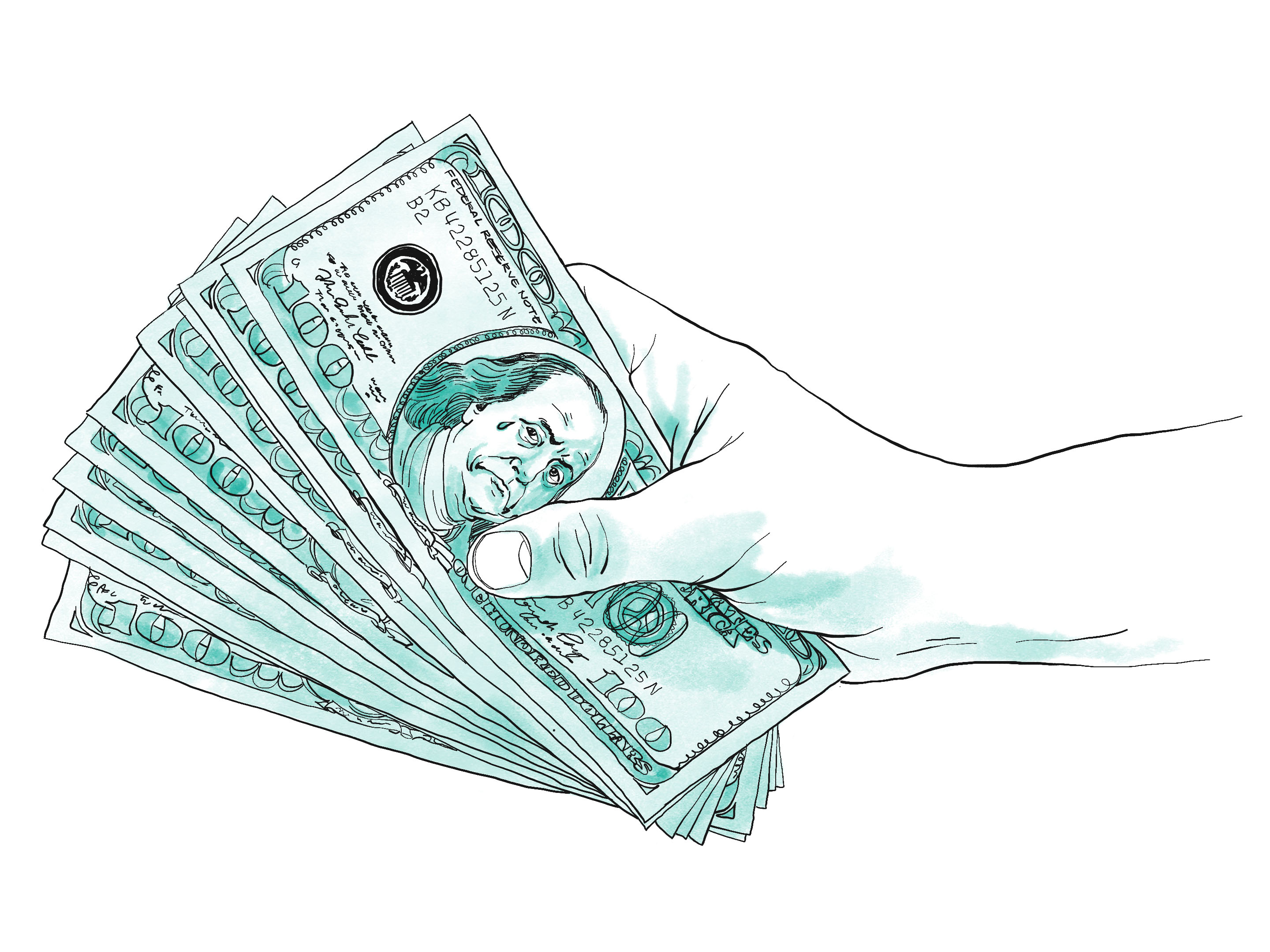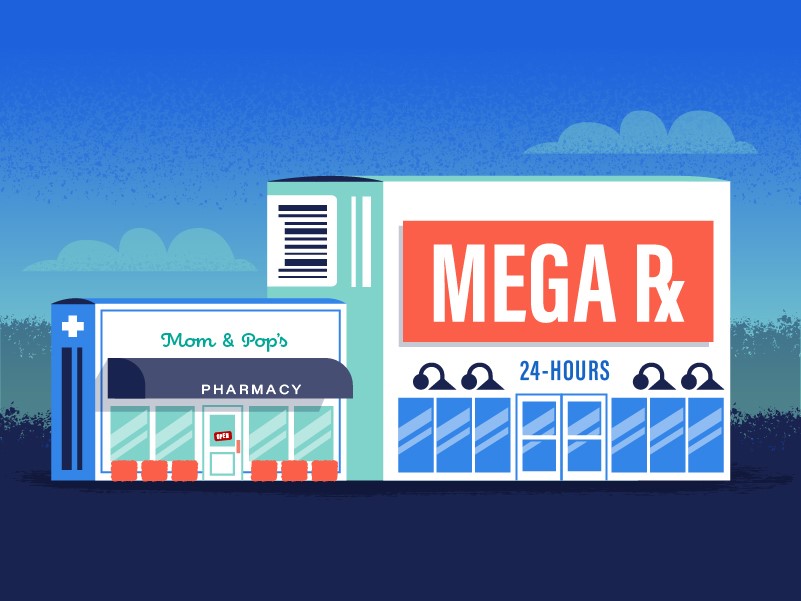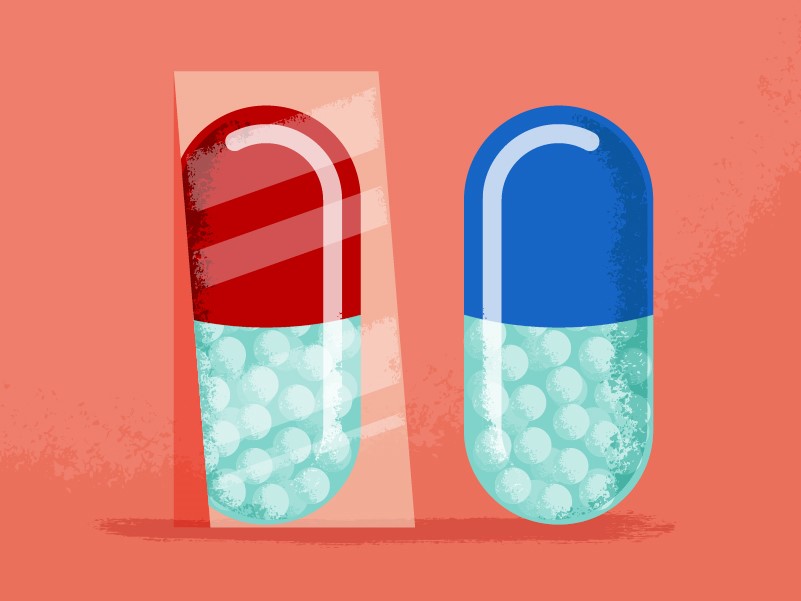New Administration, New Rules?
Also featured: Accelerating vaccines and COVID-19 domino effects

Editor’s note: Welcome to The PostScript Rewind, a biweekly recap of the latest in healthcare news. Featuring what you need to know — none of what you don’t.
The Biden administration is expected to weigh in soon on whether the government will pave the way for Americans to import lower-cost drugs from Canada. Several states — including Florida, Colorado and some in New England — are moving ahead with those efforts.
The former administration greenlighted the endeavor last fall. President Biden initially expressed support for the move. But the pharmaceutical industry is staunchly against it, arguing it would stymie drug-safety efforts.
Federal agencies under the new administration also are eyeing an overhaul of the nation’s 25-year-old HIPAA (Health Insurance Portability and Accountability Act). Experts say the privacy rules are due for a rewrite. A new rule proposed in December would give patients more control over their data while ramping up information-sharing capabilities.
Accelerating the vaccine train
COVID-19 vaccine No. 3 may be OK’d soon. Johnson & Johnson applied for U.S. Food and Drug Administration emergency-use authorization for its one-dose COVID-19 vaccine, which could be available in coming weeks. The single-dose vaccine also has the plus of being able to be stored at refrigerator temps.
In more vaccine news:
• A new study recommends using a ready-made pipeline of primary care doctors to speed up vaccine rollout. Published by the Annals of Family Medicine, the study says this method could ensure delivery to U.S. communities, including those in rural and remote areas.
• Retail pharmacy giants like CVS Health and Walgreens are embracing a major role in the vaccination effort. Tens of thousands of sites are expected to take part. In doing so, analysts say the pharmacy giants could see over $650 million in gross profits.
• Other essential drugs needed to treat patients — including sedatives and paralytics — are in alarmingly short supply. The pandemic and supply-chain issues have worsened shortages as pharmaceutical companies offshore their production.
Apple, Google, even Uber in the healthcare fray
Everybody’s jumping in the healthcare pool these days.
• Ride-hailing giant Uber is getting in the prescription drug-delivery business. The company said it will start delivering prescription meds via Uber Eats, in a partnership with California-based Nimble.
• Google is using its cloud-based muscle to model COVID-19 cases and help allocate vaccine distribution.
• And according to a new study, Apple Watch can monitor the symptoms of Parkinson’s Disease, a potential boon to researchers and patients.
COVID-19 dominoes
Finally, here’s a potpourri of pandemic-related news:
• The Biden administration has reached a $230 million deal for at-home COVID tests with an Australian diagnostics company. The over-the-counter tests are expected to cost around $30 and will require a smartphone.
• What specialty areas used telemedicine most during the early months of the pandemic? According to a study, endocrinologists and gastroenterologists top the list, with optometry and physical therapy using it the least.
• Drug manufacturers have worked with unprecedented speed to develop new products since the pandemic began. That’s in part due to their willingness to assume more risk and their ability to leverage past research.
• Humana and Dispatch Health are partnering to offer in-home emergency and acute care ’round the clock to Medicare members. The services will start in Colorado and Washington.
• Telehealth use skyrocketed during the pandemic, but it may have also had a negative impact. Because it affects EHR workflows, telehealth also may result in missed CDS alerts to clinicians.
• And moving beyond 2020, here’s a run-down of what pharmacy experts expect for the industry.
Rx Tip of the Week
When your doctor writes you a prescription for a medication, they may not always be aware if a generic version is available. With all the medications out there, it’s difficult to keep up with new generics coming on the market. So don’t be afraid to ask your pharmacist if a generic version exists. If it does, your pharmacist may be able to make the substitution. –Eric Wu, ScriptHero clinical pharmacist
This article is intended for informational purposes only and not intended to be medical advice, nor does it replace professional medical advice, diagnosis, or treatment. If you have any healthcare questions, please seek the advice of your physician or other qualified healthcare provider. If you are experiencing a medical emergency, call your physician or dial 911 immediately.
About the author
Victoria Ellwood is a writer and storyteller in central Ohio, where she writes about everything from academia, the arts and agriculture to healthcare, Shakespeare and small-town living. Her work’s been featured in Modern Farmer and magazines and websites for The Ohio State University College of Arts and Sciences, College of Nursing, Ohio’s Electric Cooperatives, University Libraries, Small Business & Entrepreneurship Council and Small Nation Strong.
This article was last updated February 22, 2021






